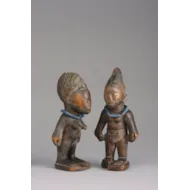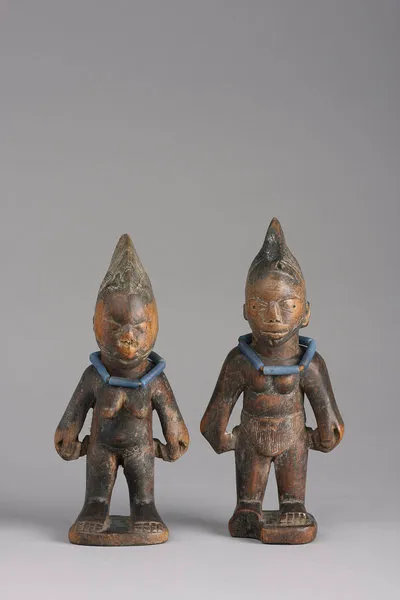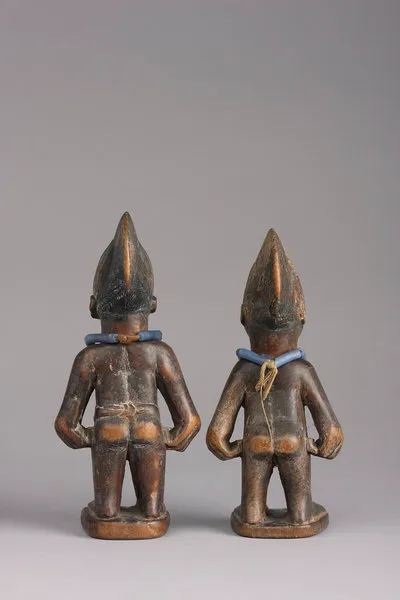Ibeji
A pair of non-identical twins with large tubular bead necklaces. The male wearing a loincloth with ties at the rear, his hands resting on his hips. One foot is damaged. Both male and female have crested hairstyles and have worn faces. On the underneath of the base is a carved sign of a triangle with projections on all points.
Early 20th century
Abeokuta. Carved by either the Adugbologe or Akinyoda families. Could be Ojerinde. A double triangle is the sign of Salakata Ayo.
Size: Female: 19 cm high - 7½ ins high
Male: 20 cm high - 8 ins high
Early 20th century
Abeokuta. Carved by either the Adugbologe or Akinyoda families. Could be Ojerinde. A double triangle is the sign of Salakata Ayo.
Size: Female: 19 cm high - 7½ ins high
Male: 20 cm high - 8 ins high
cf. Ibeji. Mareidi & Gert Stoll, 1980. illus. 3. 8
Ibeji. Chemeche, 2003. illus. 252
African Artistry. Arnette Coll. Technique and Aesthetics in Yoruba sculpture. April 17 - May 25 1980. The High Museum Atlanta. Illus. 66
Yoruba Art & Aesthetics, Rietberg Museum Zurich. 1991
p.36 illus. 44 a/b.
Ibeji. Chemeche, 2003. illus. 252
African Artistry. Arnette Coll. Technique and Aesthetics in Yoruba sculpture. April 17 - May 25 1980. The High Museum Atlanta. Illus. 66
Yoruba Art & Aesthetics, Rietberg Museum Zurich. 1991
p.36 illus. 44 a/b.
Ibeji

SOLD




YOU MAY ALSO LIKE

